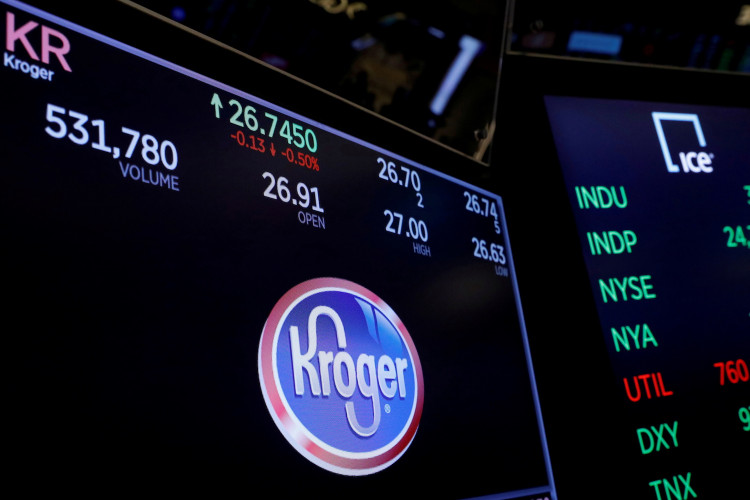The Biden-Harris administration's most significant antitrust battle to date is unfolding as the Federal Trade Commission (FTC) takes on the $25 billion merger of two of the nation's largest grocery chains, Kroger and Albertsons. The trial, which began on Monday in Portland, Oregon, represents a critical moment in the administration's broader efforts to curb rising grocery prices and protect unionized workers' rights.
The FTC, under the leadership of antitrust advocate Lina Khan, has positioned the merger as a threat to both consumers and workers. The agency argues that the merger would lead to increased food prices and diminished bargaining power for unionized employees. The Biden administration's case against the merger is seen as a litmus test for its economic policies, particularly as Vice President Kamala Harris prepares to potentially take the reins in the upcoming election.
"This is the first high-profile example of the administration trying to block a merger based on a labor market theory," said Rebecca Haw Allensworth, an antitrust professor at Vanderbilt Law School. The FTC's lawsuit alleges that the merger would concentrate grocery store ownership, reduce competition, and harm workers by weakening unions' bargaining power, particularly in states like California where Kroger and Albertsons stores are often located near one another.
The trial is expected to last three weeks, with U.S. District Judge Adrienne Nelson, a Biden appointee, presiding over the case. The FTC, backed by several Democratic-led states, is prepared to present evidence, including emails from grocery executives, that it claims demonstrate the merger would harm competition and allow the companies to raise prices.
In response, Kroger and Albertsons have pushed back against the FTC's assertions. "Blocking Kroger's merger with Albertsons Companies will actually harm the very people the FTC purports to serve: America's consumers and workers," said Erin Rolfes, a spokesperson for Kroger. The companies argue that the merger would result in $1 billion in price cuts on thousands of goods and have pledged to honor existing collective bargaining agreements.





